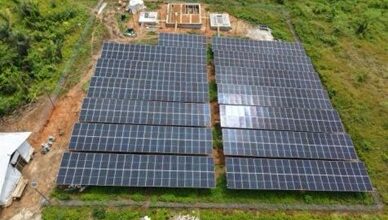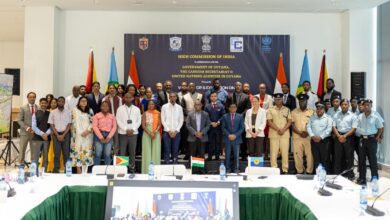Mr Chairman
Principal of the Caribbean Institute of Meteorology and Hydrology (CIMH)
Delegates
Ladies and Gentlemen.
It is with extreme pleasure that I welcome you to this 40th Meeting of the Council of the Caribbean Meteorological Organisation (CMO).
We in Barbados see the CMO as a truly regional organisation seeking to bridge the gaps between our respective countries in an area of particular interest and concern – the weather. Countries in the CMO are all equally under threat each year from tropical weather systems and even though some of our territories may have had frequent impacts from such systems, we have been able for the most part to anticipate these impacts partly because of our membership and participation in the CMO.
Membership in CMO is not just about paying or not paying subscriptions and attending the series of meetings held annually at this time. Membership in CMO like any regional organisation brings with a determination to work in concert for the common good of all Caribbean people. The accuracy of our forecasts and early warning systems can only be measured in relation to our commitment to the work being done by CIMH and this commitment must be translated in terms of payment of subscriptions when they fall due and the reduction of the level of arrears of member countries.
Perhaps the most significant initiative for the region being undertaken by CMO is the Regional Radar Project which would see radar systems located in at least four Caribbean territories – Guyana, Trinidad, Barbados and Belize. Needless to say this Project is eagerly awaited by all member countries of CMO. This eagerness brings with it a feeling of urgency because several of our territories have been without a vital weather radar link for several years and even though the impacts have been minimised through preparedness we fear the worst may yet be coming. This Council should do all in its power to ensure that arrangements with the financers of the Radar Project are brought to a conclusion to facilitate implementation early next year. By the same token we as individual countries must finalise our own arrangements so that installations can go ahead without further impediment. We have indeed come too far and planned for too long for our efforts to be forestalled.
The experience of the past few years have indicated that climate change is a reality and that our weather patterns across the region have mirrored that change. Changes in intensity of rainfall and greater propensity for flooding have been recorded in several countries across the region and worldwide. The continued thrust in training must be maintained if we are to understand and anticipate these occurrences. The Caribbean Institute of Meteorology and Hydrology together with the University of the West Indies must remain the prime educational institute for the training of regional Meteorologists. In this regard, the CIMH can only survive if the contributing member countries continue to meet their share of the cost of running the Institute. For several years now the institute has been forced to defer its rehabilitation programme for its building because of shortfalls in the level of contributions from supporting members. This state of affairs clearly cannot continue as it limits the institute to be managing little beyond paying wages and salaries and running the minimum of training courses. I trust that this meeting will result in a firmer commitment on the part of member sates to bring their outstanding arrears down to a more manageable level and to ensure that the benefits of regional cooperation are felt by all.
Mr Chairman, I wish to take this opportunity to mention for the benefit of those who do not yet know, two new initiatives which are due to come on stream shortly and which will further enhance our capability to forecast. First, a study on the amelioration of the impacts of El Nino is being developed by a joint collaboration between the World Meteorological Organisation and the Caribbean Disaster Emergency Response Agency (CDERA). This project will attempt to design regional early warning systems to reduce the impact of the El Nino phenomenon and evaluate the forecasting capacity of each country to anticipate and cope with El Nino consequences. This is an important initiative since El Nino until recently has been virtually unexplained, but its effect has at times been devastating in relation to several Central and South American countries. It has also had its impact on weather patterns in the Caribbean.
The second and perhaps more significant project is being financed with assistance from the Government of England. The project is aimed at:
- improvement of the telecommunications systems to enhance transmission and downloading of vital forecast information;
- rehabilitation and upgrading of the present aging observation equipment in use in manuy countries of the region. Emphasis will be placed on the Global Climate Observation System (GCOS), and utilising new systems of measurement such as ultra violet and even ozone soundings.
- Renovation of the regional technical laboratory for the maintenance of instruments to ensure the observations are of consistent quality and reliability.
- Upgrading of database management, data storage and rescue systems.
Mr Chairman, members of the Council, these meetings are timely since they are convened immediately after the region’s hurricane season. We therefore have the experience of the past months to guide us in our preparation for the next year.
I therefore urge you to give your strict attention to the matter on the agenda and please be reminded that the people of the region will be awaiting the outcome of our deliberations. I wish you a productive meeting.
I thank you.





